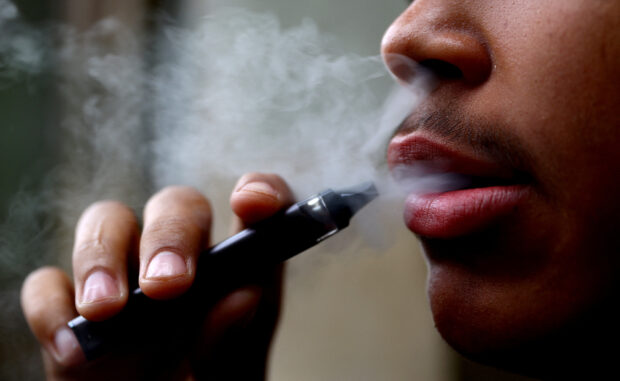
FILE PHOTO: A man smokes a disposable vape, Newcastle-under-Lyme, Britain, September 14, 2023. REUTERS/Carl Recine/File Photo
MANILA, Philippines — The Department of Health (DOH) on Wednesday voiced support for Finance Secretary Ralph Recto’s proposal to ban the sale of disposable vapes in the country.
Recto previously said that most disposable vape products are not registered with the Department of Trade and Industry (DTI) and are not appropriately taxed.
DOH said that while it agrees with the Finance chief on this aspect, it argued that all vape products should be banned as they pose risks to the users’ health and the environment.
READ: Vaping not a safer alternative to cigarette smoking, says health advocate
“The SOF [Secretary of Finance] only proposed to ban disposable vapes. DOH supports that, in addition to [its] perspective, that all vapes should be banned,” the department said in a text message to reporters.
The health department explained in a separate statement that “disposable vapes and vapor products pose significant health risks including e-cigarette or vapor product associated lung injury (EVALI), nicotine addiction, and respiratory and cardiovascular diseases, among others.”
As for its environmental effects, the department noted that disposable vapes are made with plastic and batteries that are not easily recyclable or biodegradable, resulting in electronic waste (e-waste).
READ: PH pushed to reject vape, e-cigarettes in international meet
E-waste, it added, “contains harmful chemicals that can seep into soil and water sources, posing risks to both the environment and public health.”
Last February, the DTI said that it had heightened its efforts against illegal vape sellers and penalized vape shops that sold the products to minors.
According to the 2019 Global Youth Tobacco Survey, 14 percent of Filipino youth aged 13 to 15 — about one in every seven — were already using electronic cigarettes. This translates to about a million young users in the country.